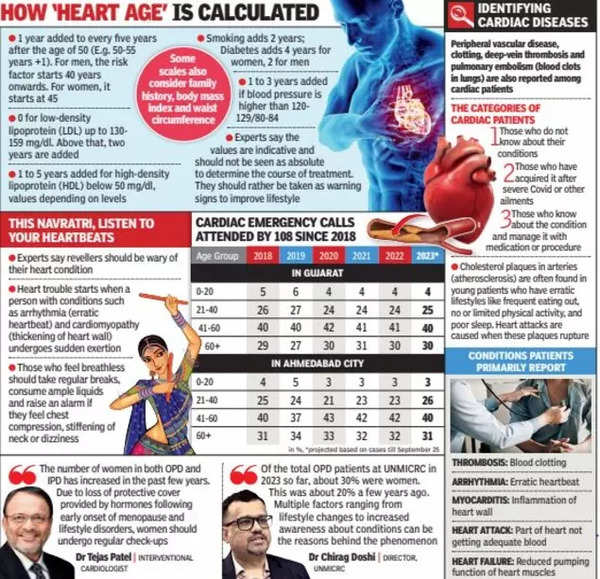Congenital disorders
Sudden deaths: What postmortems reveal | Ahmedabad News
On Thursday alone, two cases of sudden deaths were reported across Gujarat – one each in Vadodara and Ambaji. Why do the youngsters drop dead? Some of the forensic medicine experts who perform postmortem examinations told TOI that the reasons are very different for different age groups. However, congenital heart diseases, formation of clots and blockages are found in some of the autopsies.

A senior forensic medicine expert said that not all persons who die in such a manner come for the postmortem examination. “But we can say based on a few recent cases that those who are below 20 years of age have congenital anomalies – often associated with valves apart from chamber formation or heart wall thickening – which was not diagnosed. Such patients do not show formation of plaques or anomalies associated with lifestyle disorders,” said the expert, adding that ubiquitous nature of mobile phones have made it easy for the society to record such instances. “Earlier, too, there were such deaths. But it was not reported or recorded.”
“In some of these cases, we have found thrombus or blood clot that travels to lung or heart. Another major finding is blockage of coronary artery in some of the autopsies. In particular, we found blockage of left anterior descending (LAD) artery among patients between 20 to 40 years. Narrowing of arteries and plaque ruptures are also seen in solitary cases,” said another forensic medicine expert.
One of the cases of sudden deaths had heart full of blood. “It happens when after heart attack (myocardial infarction) necrosis starts and the interior of the heart ruptures. The blood then floods pericardium or exterior wall of the heart. Such cases go for further analysis through viscera analysis where the experts check histopathology and study necrosis changes in arteries to confirm the cardiac event,” said a city-based forensic medicine expert.
In one of the cases, the experts have also found hypertrophic obstructive cardiomyopathy (HOCM) condition where the wall of the heart is thicker than normal and thus causes slowing down of heart pumping.
Experts said that the takeaway from the learning should be early detection in childhood to prevent extreme event and understand signs including murmurs of heart, frequent chest pain, uneasiness, dizziness and excessive perspiration to undergo medical check-up.

